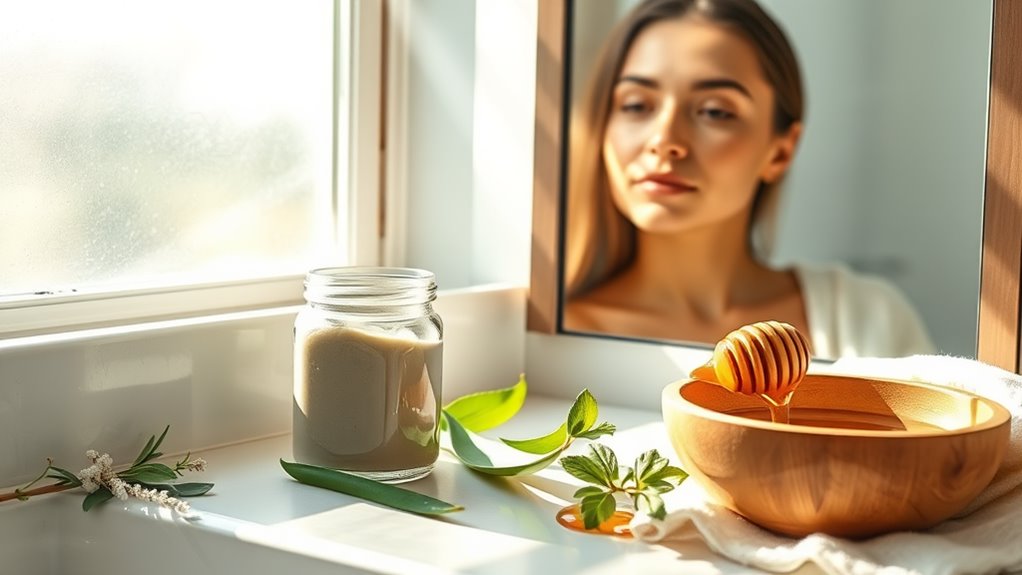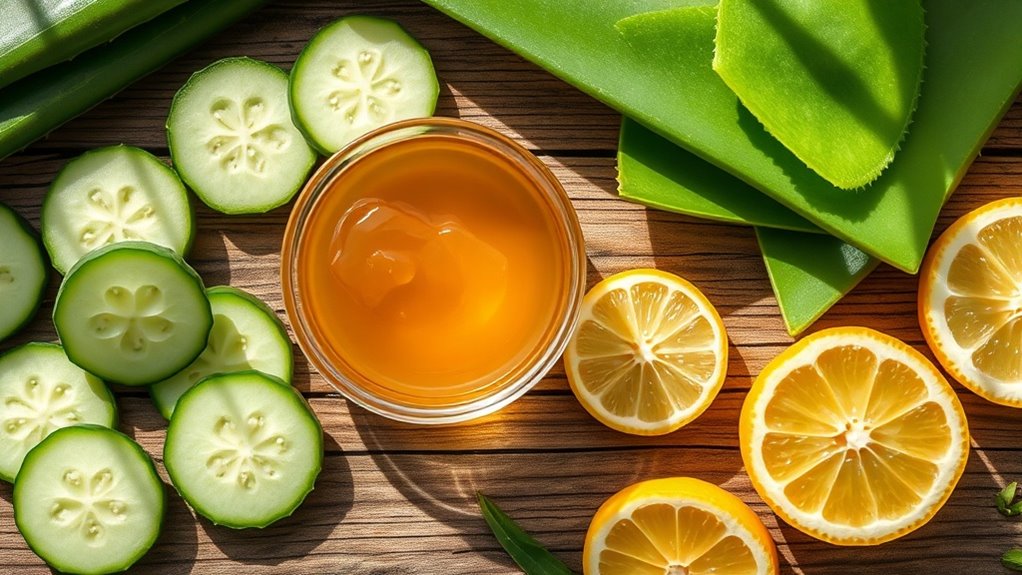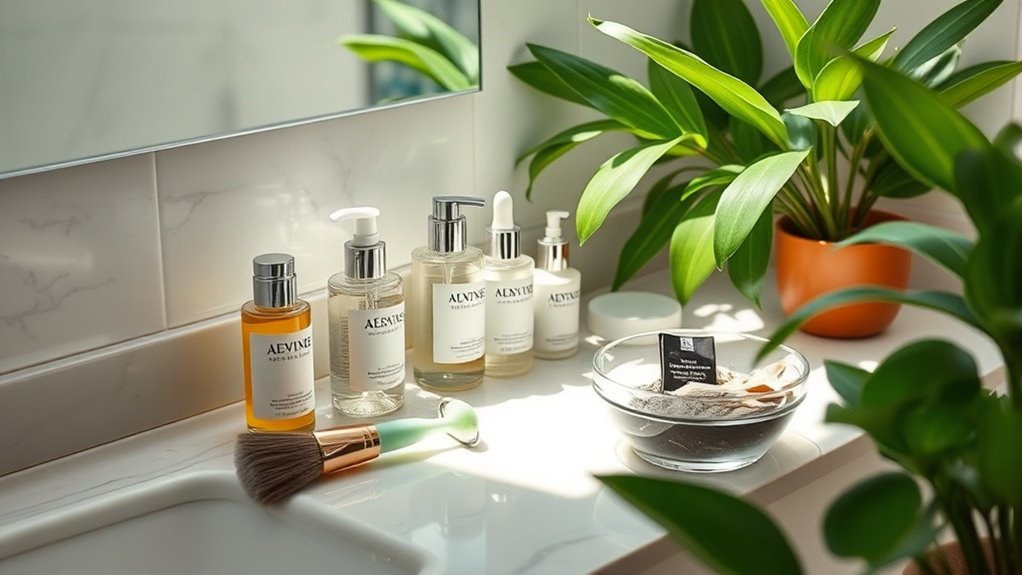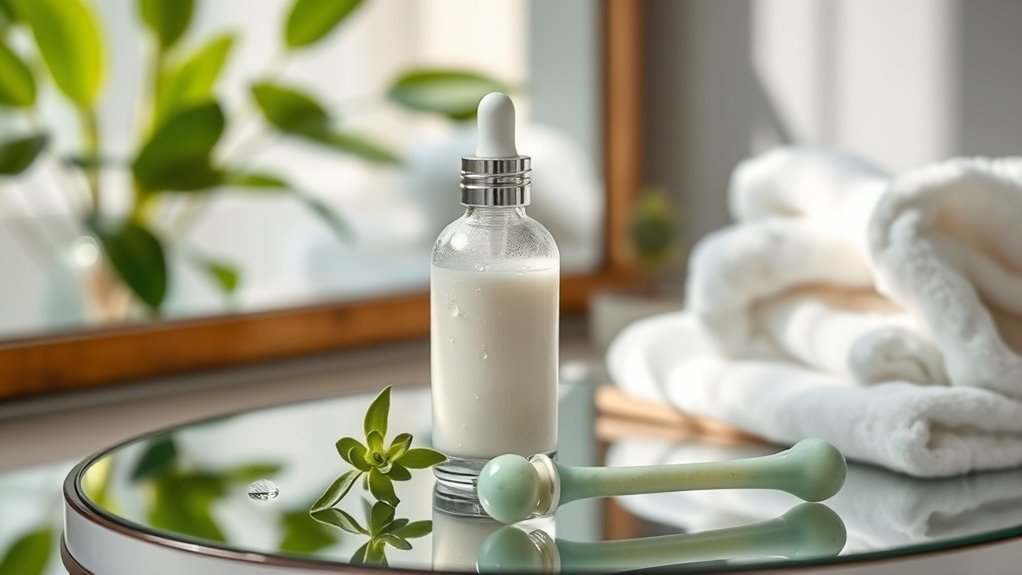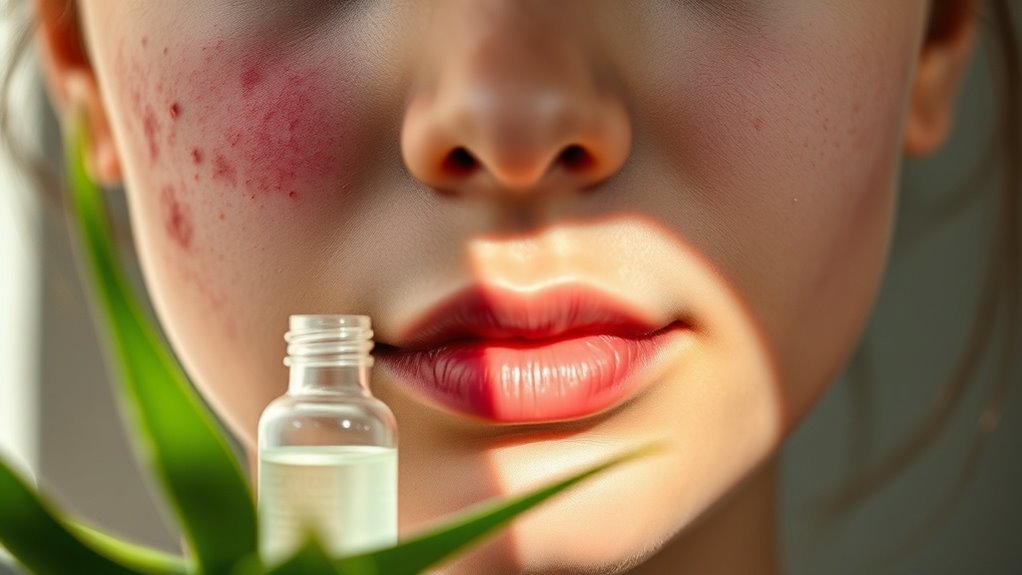How I Cleared My Acne Without Harsh Products
If you’ve struggled with acne, you know how frustrating it can be. Many people turn to harsh products, but there are gentler, effective alternatives. By focusing on a tailored skincare routine and incorporating natural remedies, you can achieve clearer skin without irritation. Understanding your skin type and making small dietary changes can also play a crucial role. Let’s explore how these approaches can transform your skin journey.
My Skincare Routine Transformation
When you’re struggling with acne, overhauling your skincare routine can make a significant difference. Start by choosing gentle acne remedies that won’t irritate your skin.
Look for products containing ingredients like salicylic acid or benzoyl peroxide in lower concentrations—these can help combat breakouts without over-drying. Incorporate a mild cleanser to remove dirt and excess oil without stripping your skin of moisture.
Opt for a lightweight, non-comedogenic moisturizer to nourish your skin, and don’t neglect sunscreen; sun exposure can worsen acne scarring. You might also consider adding a soothing toner with witch hazel or rose water to balance your skin’s pH. Additionally, salicylic acid works effectively to unlock clear skin by penetrating pores to exfoliate dead skin cells and reduce inflammation.
Consistency is vital, so give your new routine time to work and track your progress for the best results.
Understanding My Skin Type
Understanding your skin type is crucial for effective acne management and skincare success. Your skin can be categorized as oily, dry, combination, or sensitive.
Oily skin tends to produce excess sebum, often leading to clogged pores and breakouts. Dry skin, on the other hand, can create a barrier that traps impurities, while combination skin presents its own challenges, with oily zones in some areas and dryness in others.
Sensitive skin can easily react to products, leading to irritation. Identifying your skin type allows you to choose products tailored to your needs, ensuring they effectively target your acne without causing further issues. Conduct a simple test by observing how your skin behaves throughout the day to pinpoint your type accurately. Additionally, recognizing your unique skin type enables you to tailor your routine with specific products that enhance your overall skincare effectiveness.
The Role of Diet in My Acne Journey
While many factors contribute to acne, diet plays a significant role that shouldn’t be overlooked. Research suggests that high-glycemic foods, like white bread and sugary snacks, can trigger insulin spikes, leading to increased oil production and inflammation in your skin.
Switching to a diet rich in whole foods, such as fruits, vegetables, lean proteins, and healthy fats, can improve your skin’s condition. Omega-3 fatty acids, found in fish and flaxseeds, have anti-inflammatory properties that may help reduce acne.
Additionally, dairy consumption has been linked to acne flare-ups for some individuals, so monitoring your intake could be beneficial. Ultimately, being mindful of what you eat can significantly impact your skin health and support your acne-fighting efforts. Avoiding common acne triggers can be essential for achieving a clearer complexion.
Natural Remedies That Made a Difference
As I explored various options for managing my acne, I discovered that natural remedies could significantly enhance my skincare routine. Here are some remedies that made a difference:
| Remedy | Benefits | How to Use |
|---|---|---|
| Tea Tree Oil | Antimicrobial properties | Dilute with carrier oil |
| Aloe Vera | Soothes inflammation | Apply gel directly |
| Honey | Antibacterial and healing | Use as a face mask |
| Witch Hazel | Reduces oil and inflammation | Apply with cotton pad |
| Green Tea | Antioxidant properties | Use as a toner |
These remedies not only helped reduce breakouts but also improved my overall skin texture. Integrating these simple, natural solutions into your routine can yield promising results. Moreover, it’s important to consider avoiding certain foods that may exacerbate acne to further promote clearer skin.
The Importance of Hydration
Hydration plays a crucial role in maintaining healthy skin, especially for those battling acne. When your body is adequately hydrated, it helps to balance oil production, preventing excess sebum that can lead to clogged pores and breakouts.
Drinking enough water also supports skin elasticity and overall radiance, giving your complexion a healthy glow. Research shows that hydrated skin is better equipped to repair itself, enhancing healing and reducing inflammation associated with acne.
Moreover, hydration aids in flushing out toxins, which can contribute to skin issues. Aim to drink at least eight glasses of water daily, and consider incorporating water-rich foods like fruits and vegetables into your diet. Essential foods such as fatty fish and nuts can also promote skin health.
Proper hydration can be a simple yet effective way to support your skin’s health.
Patience and Consistency in Healing
Achieving clear skin is often a journey that requires both patience and consistency. Many people expect rapid results, but it’s crucial to understand that healing takes time.
Your skin’s turnover rate averages about 28 days; therefore, you won’t see immediate changes. Stick to your skincare routine diligently, as consistency helps to maintain progress and prevent setbacks. Research shows that irregular use of products can lead to flare-ups and can hinder improvement.
Monitor your skin’s response and adjust your routine as necessary, but do so gradually. When you’re patient and committed to your regimen, you’ll foster an environment for healthier skin. Incorporating natural detox methods can further enhance your skin’s overall appearance and promote lasting clarity.
